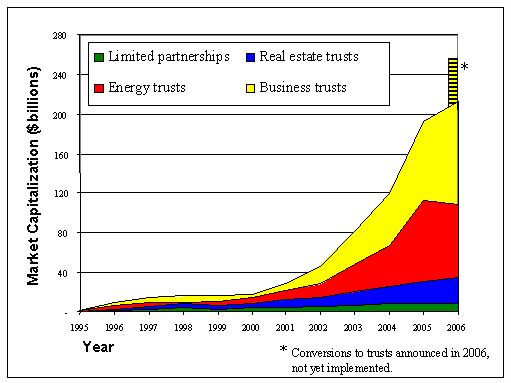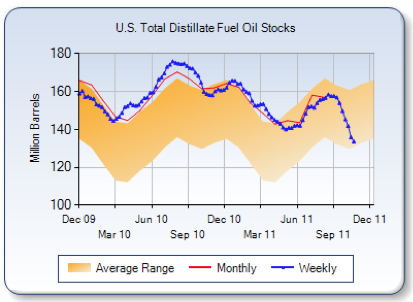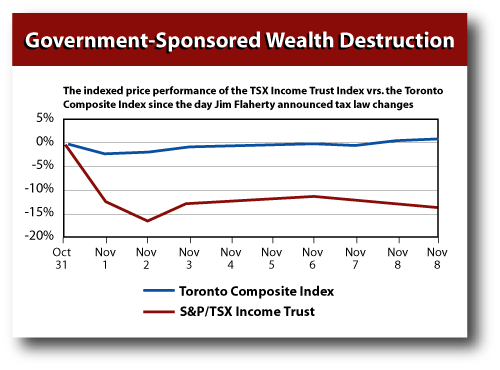Investing in the stock market can be a lucrative venture, but it’s crucial to have a deep understanding of the different types of stocks available. One such type is oil trust stocks, which provide investors with an opportunity to benefit from the oil and gas industry.
In this article, we will explore what oil trust stocks are, their advantages and disadvantages, factors to consider before investing in them, top oil trust stocks to watch in the current year, how to evaluate their performance, risks associated with investing in them, tax implications, strategies for building a diversified portfolio with these stocks, and ultimately whether investing in oil trust stocks is right for you.
What are oil trust stocks?
Oil trust stocks allow individuals to own a share of revenue generated from oil and gas properties. These stocks typically consist of royalty interests or working interests in oil and gas wells.
As an investor, you receive regular payments called royalty income based on the production and sale of oil or natural gas by the underlying assets owned by the trust. Investing in oil trust stocks offers exposure to the energy sector without directly operating wells, providing potential growth opportunities and stable passive income.
However, it’s important to consider risks such as price fluctuations and regulatory changes.
Advantages and Disadvantages of Investing in Oil Trust Stocks
Investing in oil trust stocks has its pros and cons. On the upside, these investments offer high dividend yields due to stable royalties from consistent production. They also provide exposure to the growing global demand for energy resources. However, there are downsides as well.
Oil trust stocks are tied to commodity prices and market volatility, making them vulnerable to downturns. Additionally, the depletion of reserves over time poses a risk of decreasing royalty income. Investors must carefully weigh these factors before deciding to invest in oil trust stocks.
| Advantages | Disadvantages |
|---|---|
| High dividend yields | Susceptibility to market volatility |
| Exposure to global energy demand | Risk of reserve depletion over time |
| Stable royalties | Fluctuations in commodity prices |
Considering both the advantages and disadvantages can help investors make informed decisions about investing in oil trust stocks based on their financial goals and risk tolerance.
Factors to Consider Before Investing in Oil Trust Stocks
Investing in oil trust stocks involves various factors that should be carefully considered. These include the risks associated with price volatility and regulatory changes, as well as the tax implications of different income types.
Building a diversified portfolio with oil trust stocks is also crucial for managing risk and potentially enhancing returns. By evaluating these factors thoroughly, investors can make informed decisions that align with their investment goals and risk tolerance levels.
Top Oil Trust Stocks to Watch in [Current Year]
To make informed investment decisions, keep a close eye on the top-performing oil trust stocks. These companies consistently show strong performance and future growth potential. Analyzing historical royalty payments, evaluating management expertise, and assessing financial stability provide valuable insights for investors.
Stay vigilant and proactive in research efforts to capitalize on opportunities in this dynamic sector.
Table: Examples of Top Oil Trust Stocks
| Company Name | Ticker Symbol | Industry Focus |
|---|---|---|
| XYZ Oil Trust | XYZ | Exploration |
| ABC Energy Trust | ABC | Production |
| DEF Petroleum Trust | DEF | Refining |
Note: The table is for illustrative purposes only and not investment advice.
Evaluating the Performance of Oil Trust Stocks
When evaluating the performance of oil trust stocks, several factors should be considered. Historical royalty payment performance indicates a trust’s ability to generate consistent income. The expertise and experience of the management team play a crucial role in delivering positive results.
Financial stability and debt levels provide insights into a trust’s ability to withstand market fluctuations. Geographical diversification helps mitigate risks, while staying informed about industry trends allows for better assessment of long-term viability and growth potential.
By analyzing these factors, investors can make more informed decisions when investing in oil trust stocks.
Risks Associated with Investing in Oil Trust Stocks
Investing in oil trust stocks carries inherent risks. Fluctuating oil prices and market volatility can negatively impact revenue generation from underlying assets, leading to a decline in royalty income for investors. Depletion of reserves over time is another risk, as maintaining or increasing production becomes challenging.
Legal and regulatory changes can also impact profitability and operations. Investors must stay informed and evaluate each oil trust carefully before making investment decisions to mitigate these risks and protect their financial interests.
Tax Implications of Investing in Oil Trust Stocks
Investing in oil trust stocks can have significant tax implications that investors must carefully consider. By understanding these implications, you can optimize your investment strategy and effectively manage your tax liabilities.
One crucial aspect to understand is the classification of royalty income received from oil trusts. Depending on various factors, this income can be categorized as regular income or capital gains. It is essential to grasp the tax treatment of these different types of income to ensure you are aware of the potential impact on your taxes.
Moreover, there are specific tax deductions available for investors who receive royalty income from oil trusts. These deductions, known as depletion allowances, can help offset some of the taxable income generated by these investments.
By taking advantage of these deductions, you can potentially reduce your overall tax burden and increase the profitability of your investment.
To navigate through the complexities of taxation when investing in oil trust stocks, it is highly recommended to consult with a tax professional who specializes in investment taxation. Their expertise will provide valuable insights and guidance on optimizing your tax strategy specific to oil trust investments.
Working alongside a knowledgeable tax professional will enable you to make informed decisions about your investments and take advantage of any available benefits or loopholes within the tax system. They will ensure that you comply with all relevant regulations while maximizing your potential returns.
Strategies for Building a Diversified Portfolio with Oil Trust Stocks
Diversifying your investment portfolio is crucial for managing risk and maximizing returns. Including oil trust stocks in your diversified portfolio can provide exposure to the energy sector while spreading risk across different asset classes.
To effectively incorporate oil trust stocks into your portfolio, consider setting allocation limits to prevent overexposure. Regularly reviewing and rebalancing your investments helps maintain an optimal mix of assets aligned with your goals. Stay updated on industry trends to make informed decisions based on current information.
Implementing these strategies, along with thorough research and analysis, can help mitigate risks associated with investing in oil trust stocks. By building a diversified portfolio that includes these assets, you position yourself for potential growth while safeguarding against excessive exposure.
Consulting with financial professionals can provide personalized guidance tailored to your circumstances and objectives. With careful consideration and adherence to these strategies, you can achieve long-term success in the energy sector while minimizing potential risks.
[lyte id=’_wfm3lBmK38′]







.png)